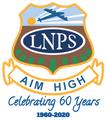HASS, Science and Languages

Science
In Science this term, our focus will be on Earth & Space Sciences. We will be exploring how Earth’s rotation on its axis causes regular changes, including day and night. Students will also be working through the ‘Engineering Design Process’ where they will be working collaboratively on a project about shadows. Students will then present their project at our Science Exhibition Assembly on Friday of Week 6.
In Term 4, our focus will be on Biology. We will be investigating how living things can be grouped based on their features and the differences between living and nonliving things. We will also be exploring life cycles of plants and animals and how living things depend on each other and their environment to survive.
Throughout the semester, students will continue to develop their Science Inquiry Skills when conducting scientific investigations. There will also be a particular focus on Science as a Human Endeavour where students will expand their scientific knowledge and to connections to the real world.
Michelle Harous
Primary Years Science teacher
HASS
HASS is a combination of History, Geography and Civics and Citizenship.
The content provides opportunities for students to develop humanities and social sciences understanding through key concepts of significance; continuity and change; cause and effect; place and space; interconnections; roles, responsibilities and rights; and perspectives and action.
This semester, Torrens students will explore their roles and responsibilities within a community and the importance of making decisions democratically. They will explain how and why people participate in and contribute to their communities. They identify structures that support their local community and recognise the importance of laws in society.
Key questions:
How are decisions made democratically?
Why do we make rules?
How can I participate in my community?
How can local government contribute to community life?
What is the difference between rules and laws and why are they important?
How has my identity been shaped by the groups to which I belong?
German and Greek
Students will use language in a range of contexts including introductions, descriptions and expressing likes and dislikes. When participating in collaborative activities and classroom routines, students will ask and respond to questions, plan collaboratively and make suggestions and statements. Learning experiences will include reading and creating written texts, oral interactions and listening tasks. Students will also be able to support their learning by working online with Duolingo, the world’s largest online language learning platform. Duolingo can be accessed at home and is very easy to follow. We have set up accounts for each students and can monitor their progress. Ask your child to share with you what they are learning with Duolingo together at home. Parents can learn too!
A Google Classroom has been set up for both German and Greek to share announcements, pose questions and give feedback. It is a valuable means of communication where additional information and resources can be shared. Students are encouraged to check Google Classroom regularly.
In German lessons students will develop confidence reading and speaking in German as well as working on understanding sounds and letter combinations to assist them with their pronunciation. This term Kleidung (clothing) gives a context to our language use. Students will work on using bilingual dictionaries and experiment with google translate to understand it has a place but is not the only way to find a translation. Students will be able to name items of clothing, understanding nouns have a gender and in turn learn about both definite and indefinite articles. Sentence structure to not only name but also begin to describe will also be a focus.
In Term 4, we will revise grammar concepts and language structures introduced this year and consolidate vocabulary using it appropriately in context in all aspects of our learning - reading, writing, speaking and listening. We will also explore the cultural perspectives associated with learning German namely looking at festivals and celebrations which are significant in German at that time of the year.
In Greek lessons, students will use simple language structures, vocabulary and phrases, (Τι καιρό κάνει σήμερα; Χρόνια πολλά) and understand basic grammatical features like the use of articles (η ΄Αννα), and apply them in their own speech and writing. They will work collaboratively to plan a birthday party for our resident bear Τάκη and will create texts to convey and present information by using simple statements such as “Το καλοκαίρι κάνει ζέστη.”
Students will identify and recognise sound-letter relationships, letter clusters, vowel-consonant combinations and the most common digraphs (αυ, ευ, μπ, ντ, γγ,γκ, τζ, τσ). The Year 4 students will consolidate their knowledge of the double sounds by completing guided reading and written tasks.
Students will be encouraged to use the Greek language as much as possible for classroom routines, social interactions and structured learning tasks. English will be used for discussion, explanation and reflection.
Finally, students will continue to experience the importance of music and dance in Greek culture, as an expression of identity and emotion. This will occur on the first Thursday of the month in the Activity Room at lunch time. The dates for this semester are: 3rd August, 7th September, 19th October, 2nd November and the 7th December.
Please ask about your child’s German and Greek lessons. Encourage your child(ren) to tell you about what they have been learning in their language lessons.
Libby Edwards
Primary Languages teacher (German)
Voula Pagonis
Language Teacher (Greek)
